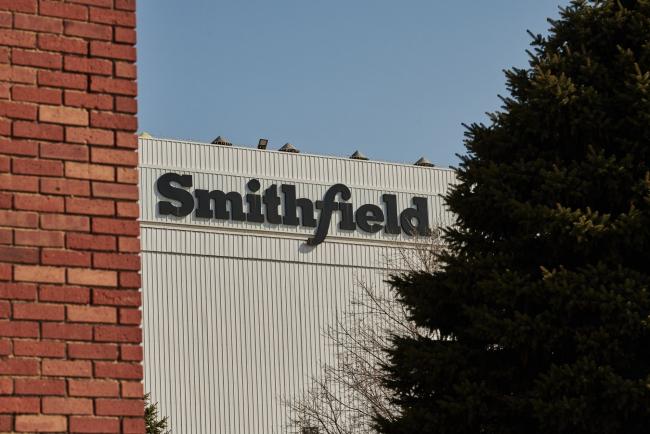(Bloomberg) -- Smithfield Foods Inc., the world’s biggest pork producer, has pledged to cut emissions from its own operations to zero, but fell short of making more ambitious targets for its supply chain.
While the Smithfield, Virginia-based company is the first in its industry to publicly announce such a goal for its own operations, the pledge is less ambitious than what’s been seen in other industries, such as Unilever’s plan to zero out its own and its suppliers emissions and Microsoft’s plan to go carbon negative.
In 2019, the pork producer’s carbon footprint stood at about 1.6 million metric tons for its own operations, so-called Scope 1 and 2, which includes fuels burned to run its vehicles and generate electricity in power plants. That figure doesn’t include the vast majority of its total emissions, so-called Scope 3, which include manure management, production of feed and customer use.
The company’s new goal, announced Thursday, targets zeroing out only about 16% of its total emissions, according to Stewart Leeth, Smithfield’s chief sustainability officer. It comes on top of a promise to cut total emissions, including Scope 3, by 25% by 2025.
To reach its goal, the company will use techniques such as reducing miles driven, capturing methane emitted from hog farms and optimizing fertilizer use in fields that grow feed for the animals.
‘Lead the Industry’
“We want to lead the industry in this regard; there’s no one doing it at this size and scale,” Ken Sullivan, Smithfield’s president and chief executive officer, said in an interview with Bloomberg.
Smithfield, majority-owned by Hong Kong-listed WH Group (OTC:WHGLY), has come under fire this year after thousands of workers at its plants and other rival meat producers caught the coronavirus. Some plants shut down, before President Donald Trump issued an executive order for meat plants to continue operating.
The meat industry has also come under pressure from investors and retailers to reduce emissions. By some measures, agriculture accounts for more global greenhouse gas emissions than transport, thanks in part to livestock production. Meat producers are also facing increased competition from the rise of plant-based alternatives, which some consumers are drawn to for their greener image.
Smithfield and Dominion Energy will each invest $250 million through 2028 in building projects that will inject captured methane from hog farms into the grid at a premium cost for its “green” credentials.
The technology to produce biogas from pig manure has been developed and perfected over many decades. Although Smithfield began working on biogas projects in the 2000s, it faced a hurdle in ensuring that the biogas could be injected into the grid and thus recoup investments. It has overcome those limitations with the new projects.
“To be sustainable, by definition, something has to be economically viable, or it doesn’t attract capital,” Sullivan said.
Learning from its own work to lower emissions, Smithfield has begun working with contractors that provide about 50% of the company’s pigs and enrolling them to participate in biogas projects, said Leeth.
©2020 Bloomberg L.P.
